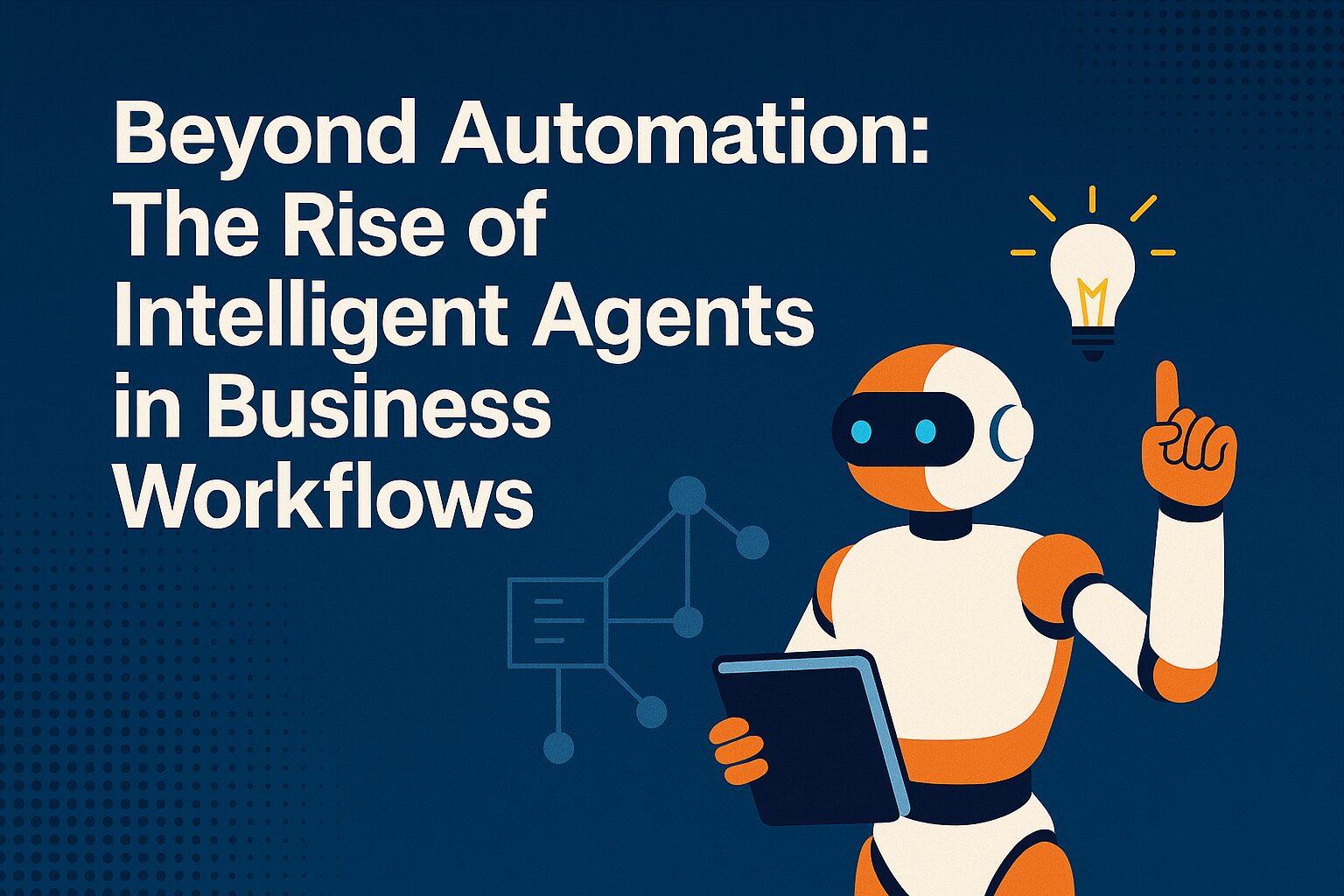1. What Are Intelligent Agents, Really?
An intelligent agent is a digital system that doesn’t just follow a script but it understands what to do, makes decisions, and learns from feedback.
It’s like hiring a virtual assistant that actually improves with every task.
Agents can:
-Interpret a problem from unstructured input
-Plan what to do based on goals and context
-Execute actions across tools and platforms
-Learn from success or failure to improve next time
This isn’t just new software. It’s a shift in how work gets done.

2. What Makes This Different from Traditional Automation?
You might already be using RPA to automate workflows, but that’s like using a calculator in a world where AI can build the whole spreadsheet.
Here’s the difference: • Traditional bots follow static rules and break when things change
- Intelligent agents adapt to dynamic inputs and evolving workflows
- Bots automate one task at a time, agents manage end-to-end processes
The biggest leap? Intelligent agents can act on judgment, not just triggers.
3. Where Are They Already Making an Impact?
- Customer Support: AI agents are managing live chats, replying with empathy, and escalating only when needed
- Finance: They flag anomalies, suggest budget reallocations, and even prepare compliance reports
- HR: From screening candidates to answering internal questions, they reduce HR load without compromising accuracy
- Supply Chain: Agents optimize deliveries, predict delays, and improve vendor communication
If your business runs on workflows and decisions, intelligent agents can make both faster and smarter.
4. Why Should Businesses and Professionals Pay Attention?
For businesses:
- Reduce time and errors across daily processes
- Empower teams to focus on strategy instead of firefighting
- Get ahead of competitors still relying on rigid automation
For professionals:
- Upskilling in intelligent automation opens doors to high-impact roles
- Learning to work with AI agents increases relevance across departments
- Being the person who proposes smarter systems? Career gold
This isn’t just about tech. It’s about how value is delivered at work.
5. Common Barriers You Can Solve Early
Before you throw AI at your workflow, a few things to fix: • Bad data gives bad decisions—start cleaning and structuring now
- Expect initial change resistance from teams—address with training and small wins
- Integration takes planning—map where your current systems meet the limits
The tech is ready. The question is, are your processes?
Conclusion
Intelligent agents are not replacing humans. They’re replacing repetitive, rigid tasks that slow down humans.
If you lead, automate, or analyze any part of a business process, now’s the time to look at where agents can create speed, consistency, and scalability. Because while bots follow instructions, intelligent agents follow goals. And that changes everything.
If you're exploring ways to future-proof your workflows or bring smarter automation into your team, subscribe to our newsletter for weekly insights built for people who actually use this tech, not just talk about it.



